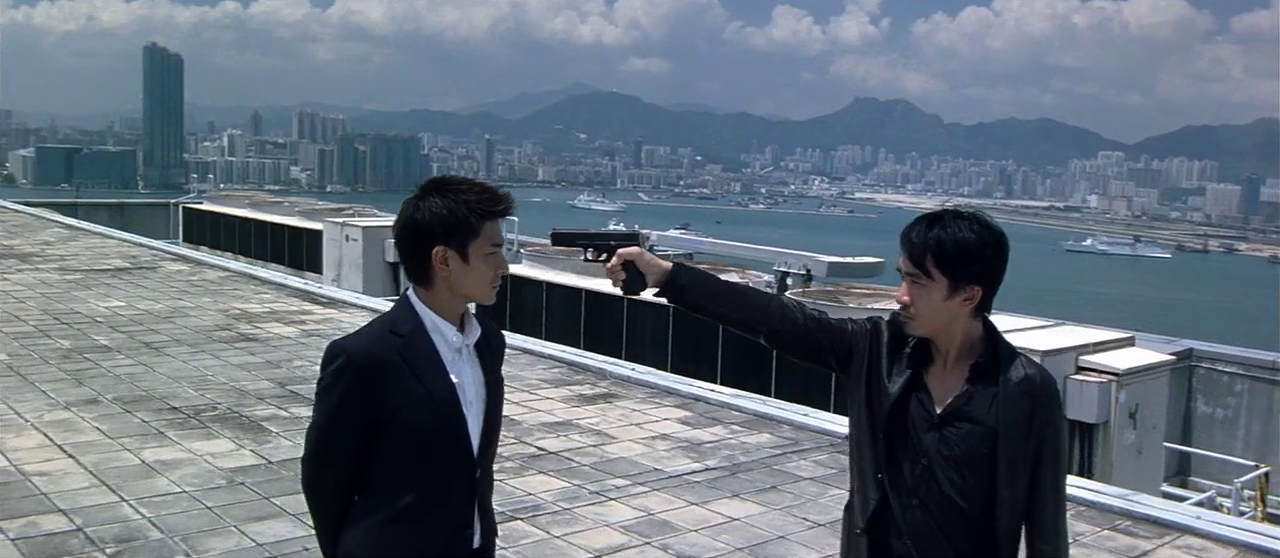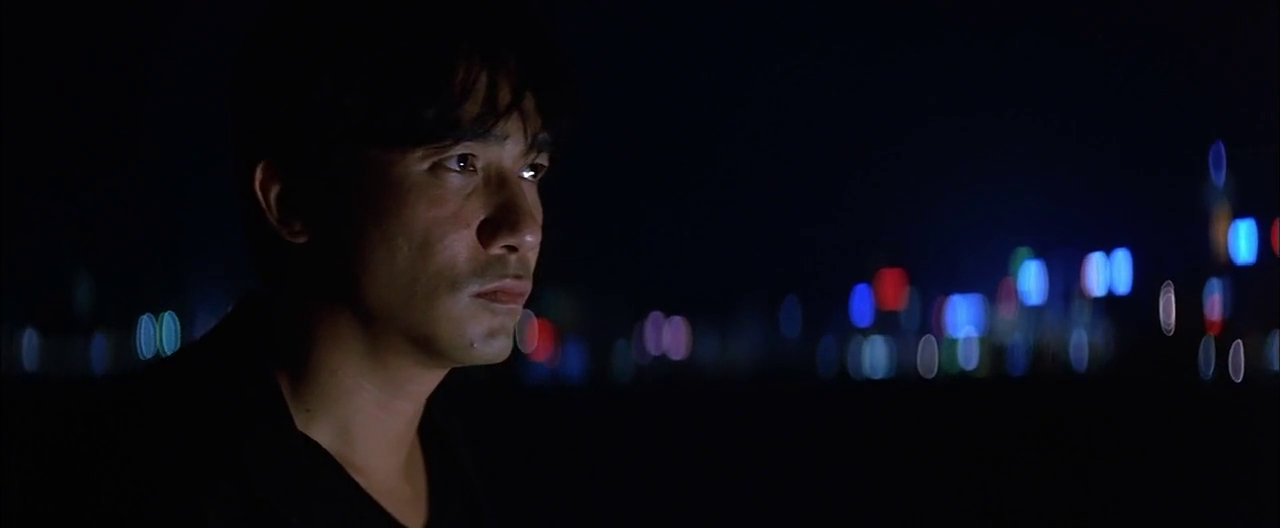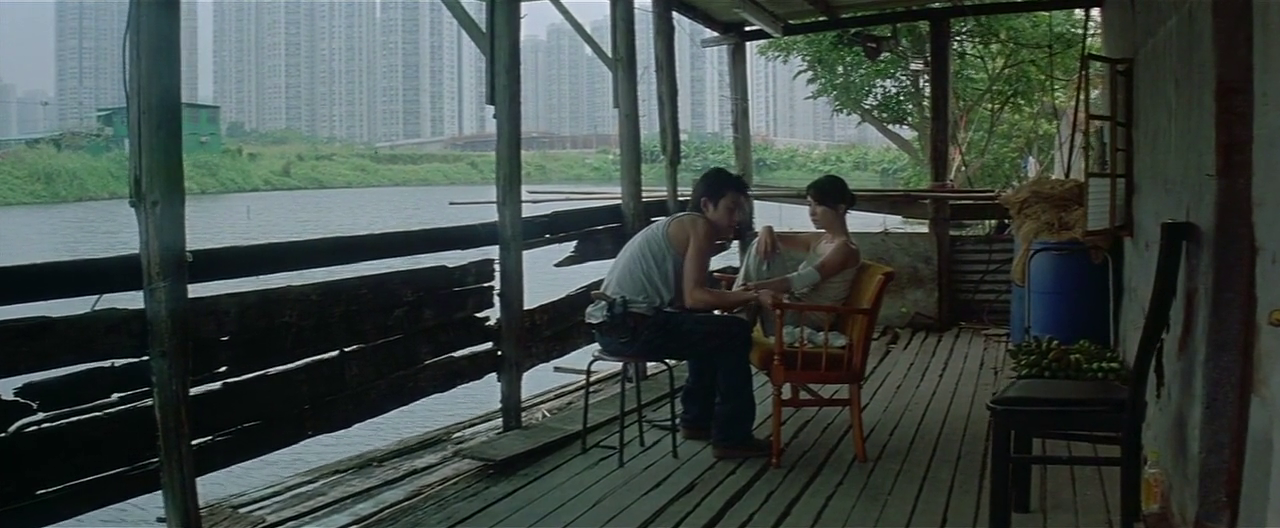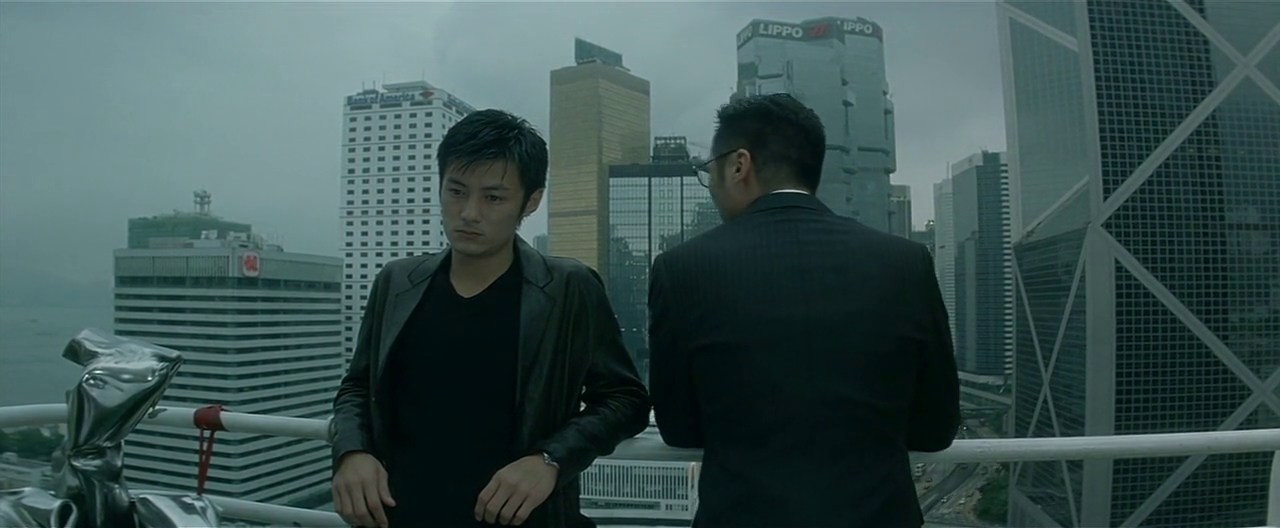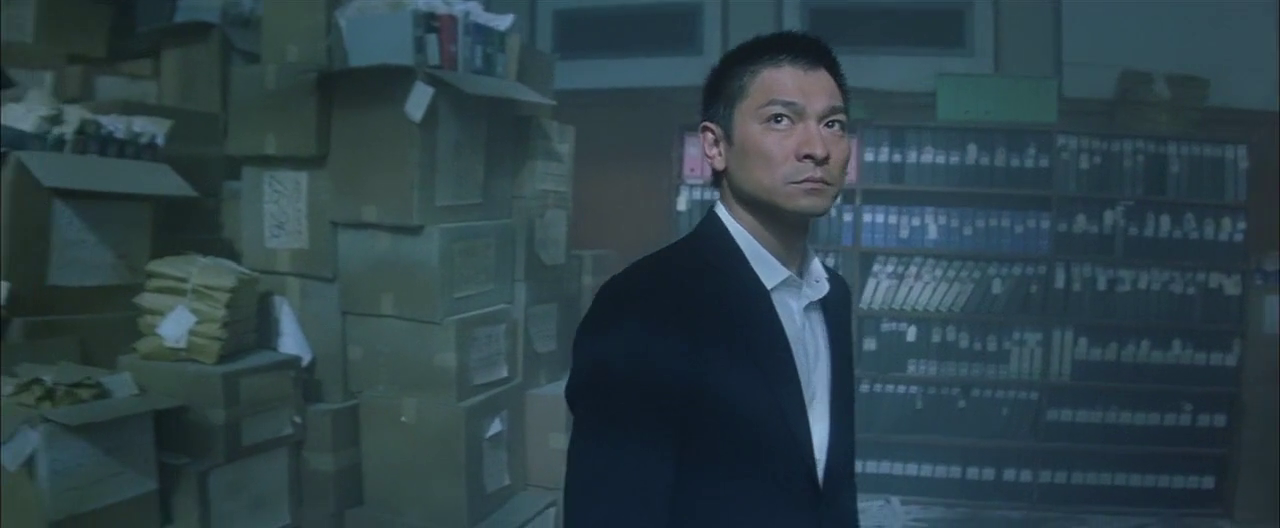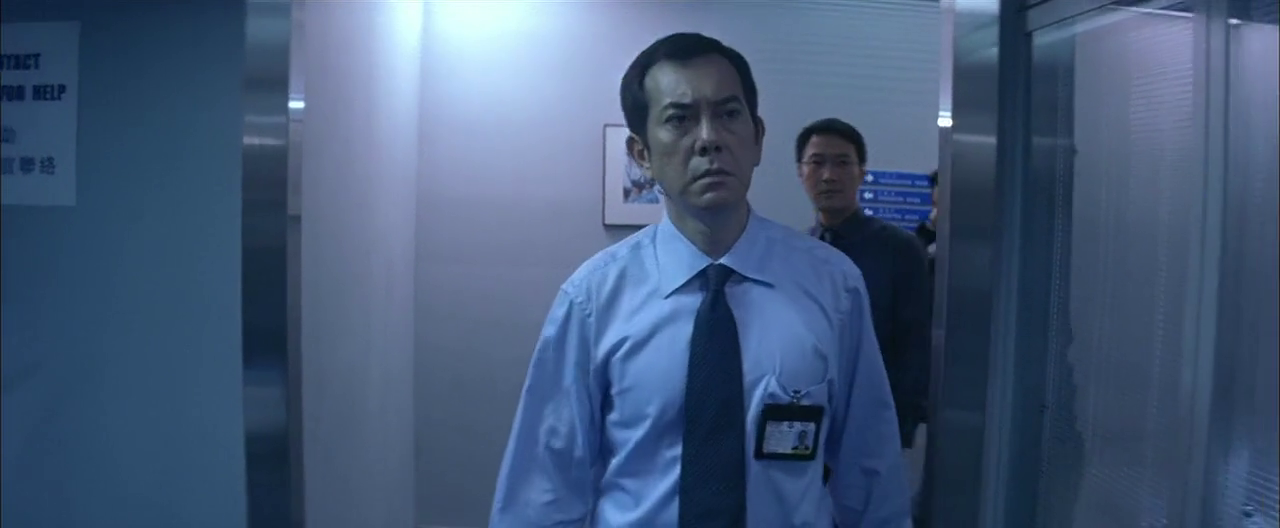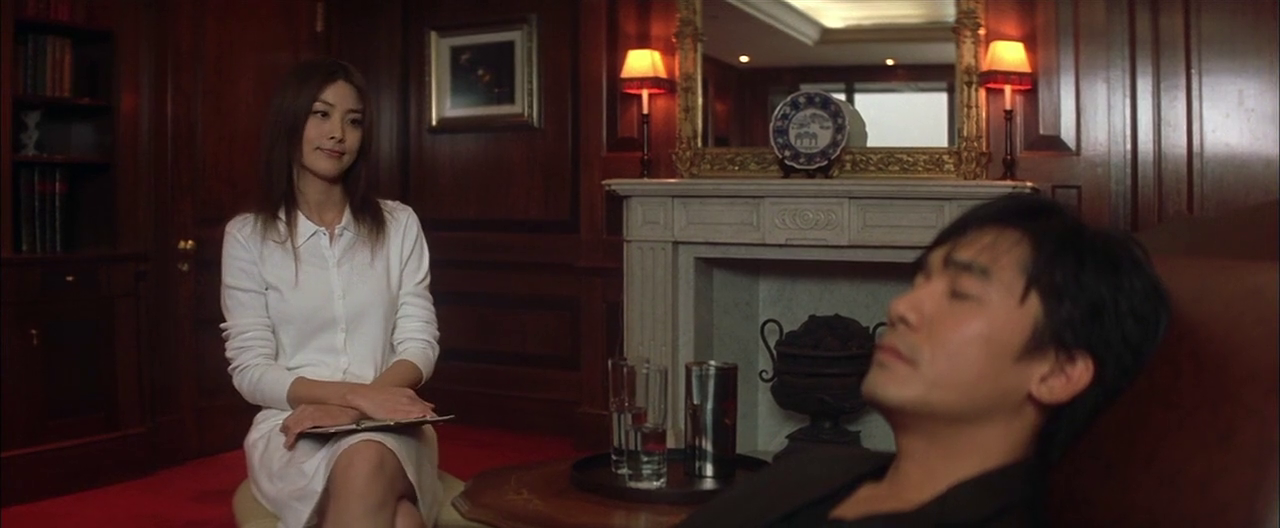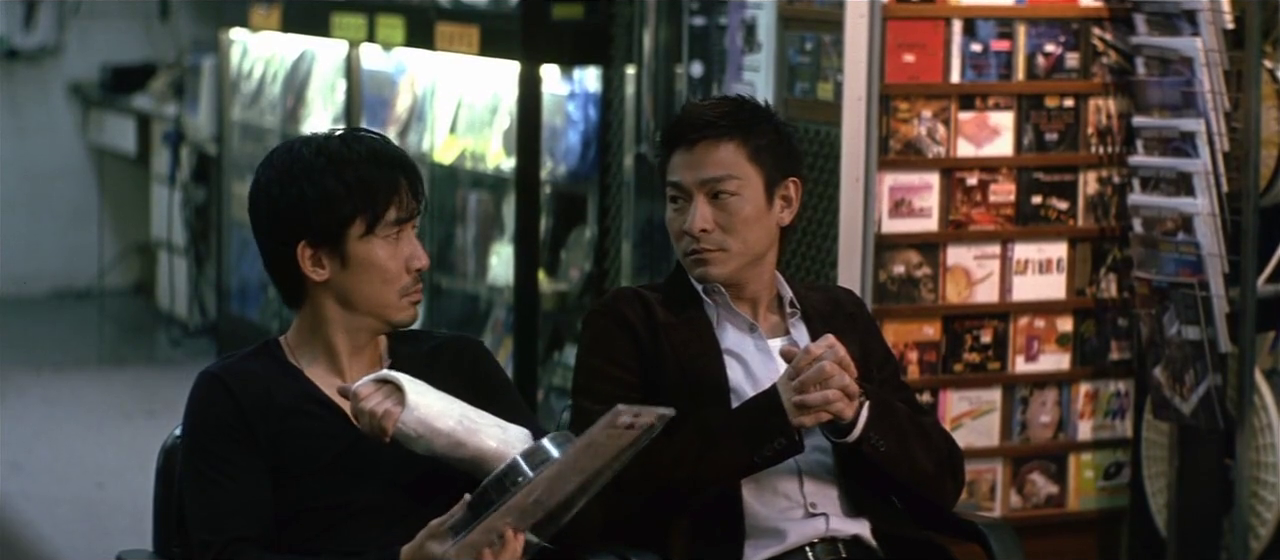Sorry. I’m a cop!
When thinking about crime movies, people often enumerate such classics as The Godfather (1972), Once Upon a Time in America (1984), Scarface (1983), The Usual Suspects (1995), and… The Departed (2006). No! The last one is a cheeky joke on my part. Actually, a movie (or a movie series, to be exact) which deserves the status of cult classic is Infernal Affairs, three movies directed by Andrew Lau and Alan Mak.
It is even hard to summarise the legacy of this trilogy because it certainly is not limited to Martin Scorsese’s remake from 2006. Actually, these movies are responsible for reinvigorating an interest in post-1997 Hong Kong cinema. The story about two moles, one in the triads and one in the police force, spawned countless reimaginings in cinema (City of Damnation, Honam) as well as television (Shades of Truth, Double Face). It even made an impact on video game industry! Needless to say, let’s take a look at the influential trilogy about crime, betrayal, and justice, nearly 20 years after its release.
Infernal Affairs (2002)
Human voices are drifting towards you. See that?
Synopsis: Chan Wing Yan (Tony Leung Chiu Wai) is a police officer working undercover within the ranks of local triads. Lau Kin Ming (Andy Lau) is a mafia member who successfully infiltrated the police force. Both men, on the services of their superiors, engage in a dangerous cat-and-mouse game, trying to expose each other. However, only one can make out of it alive.
Having revisited the original film years after I saw it for the first time, I appreciated it even more. You just don’t get this style of cinema these days. The dense ambience of Hong Kong streets, stunning cinematography by Andrew Lau and Lai Yiu Fai as well as gripping screenplay which addresses all of the plot points. In other words, Infernal Affairs is the quintessential viewing experience that never fails to keep you on the edge of your seat!
Magnificent performances cannot go unnoticed. Apart from the charismatic main leads, the appearances of Eric Tsang, Anthony Wong, Chapman To and Kelly Chen also deserve a praise. I can’t think of a better ensemble cast for such kind of a movie.
Upon my initial viewing, I could not help but hate the ending (no spoilers!). However, it makes perfect sense to me now. In a way, Yan and Ming were both victims of unfortunate circumstances. They just wanted to live a normal life, but instead, they suffered through hell and misery. The story arc of these characters ties in neatly together with the opening of the film which contains a quotation from Buddhist scriptures.
Last but not least, we should not forget about Tsai Chin’s “Forgotten Time” song, which serves a leitmotif of the trilogy, emphasising the futility of violence and the bond between the main protagonists.
Infernal Affairs II (2003)
My dad always came here after work. I want to keep up the ritual.
Synopsis: Taking place before the events of the first film, we see how Superintendent Wong (Anthony Wong) investigates the Ngai group throughout the 1990s. Young Yan (Shawn Yue) and Ming (Edison Chen) already assume their roles as the moles, but they are not integral players in the tragic drama which ultimately becomes the origin story of the triad boss, Sam (Eric Tsang).
Undoubtedly, Andrew Lau and Alan Mak really wanted to go in the Godfather’s direction with this entry. It is no longer a story about two men hunting each other down, but a downfall of crime boss Ngai Wing Hau (Francis Ng), who is basically the equivalent of Michael Corleone in the context of the film. The filmmakers even went to such lengths that they recreated the family celebration scene from the first Godfather.
Is Infernal Affairs II's sharp turn into the classic mafia vibes a bad thing? Not necessarily. The film functions as a supplement to the original, but it manages to be its own thing at the same time. That is to say, you can check out both parts in whichever order you like and you will not miss out on anything. Infernal Affairs II is a decent mobster flick which introduces some great concepts into the franchise (for instance, Wong breaking the law just to get Ngai), but it does not even attempt to replicate the grandeur of its father picture.
Allow me to praise the performances of Anthony Wong and Eric Tsang because their characters take the center stage in this prequel. Edison Chen and Shawn Yue nicely portray younger versions of Ming and Yan, but the real show stealer is Carina Lau as Sam’s wife. I love the subplot involving her character and young Ming because it provides the third movie with more substance and gravitas.
Infernal Affairs III (2003)
Destiny is destiny. Men are changed by events, not events by men. But these two men… they have changed certain events.
Synopsis: 10 months after the events of the first film, we see Lau Kin Ming (Andy Lau) cleared of any charges and reinstated to Internal Affairs section. The officer wants to start anew with his life, but he suspects that Superintendent Yeung (Leon Lai) may be another of Sam’s moles in the force. He proceeds to tail Yeung and discovers that he has a connection with Shen (Chen Daoming), a former business partner of Sam. With the help of Doctor Lee (Kelly Chen), Ming traces the last months when Yan (Tony Leung) was alive in order to unravel the truth.
In my opinion, Infernal Affairs III is a decent conclusion of the trilogy, but it becomes overcomplicated at times. The storyline unfolds across two timelines (before and after the first movie): which means that we are served with a strong dose of flashbacks. In view of jumping back and forth between various events and characters, the viewers may easily get lost if they are not paying 100% of their attention.
Still, I appreciate the fact that the original cast returned for this outing. The final part is all about Andy Lau’s character, and I have to say it has a very Shakespearean dimension. We see Ming slowly losing his mind and imagining things due to his guilt, just like the infamous Macbeth. They Buddhist premise involving Continuous Hell/Continuous Suffering becomes fully realised during the final confrontation. The ending is such a heartbreaker.
In addition, it is great that Doctor Lee was given a lot more of screen time here. Her flashback scenes with Tony Leung are pure gold, but the subplot involving her personal computer seems completely unnecessary. Leon Lai introduces more charisma into the story as the mysterious superintendent, but his character feels severely underused. He would have worked better if he had been introduced in the first film.
As for The Departed, it is a decent Hollywood flick, but I agree with the cast and crew of the original productions that the remake relied too much on foul language and tried to cram the story-arc of three films into one. What is more, do not be fooled and never grab modern productions from mainland China which are titled Infernal Affairs 4, Infernal Affairs 5, etc. These distasteful productions have nothing in common with the Hong Kong trilogy.
All things considered, this was my retrospective look at the Infernal Affairs trilogy. What are thoughts about it? Which part is your personal favourite? Please leave a comment and thank you for reading!

